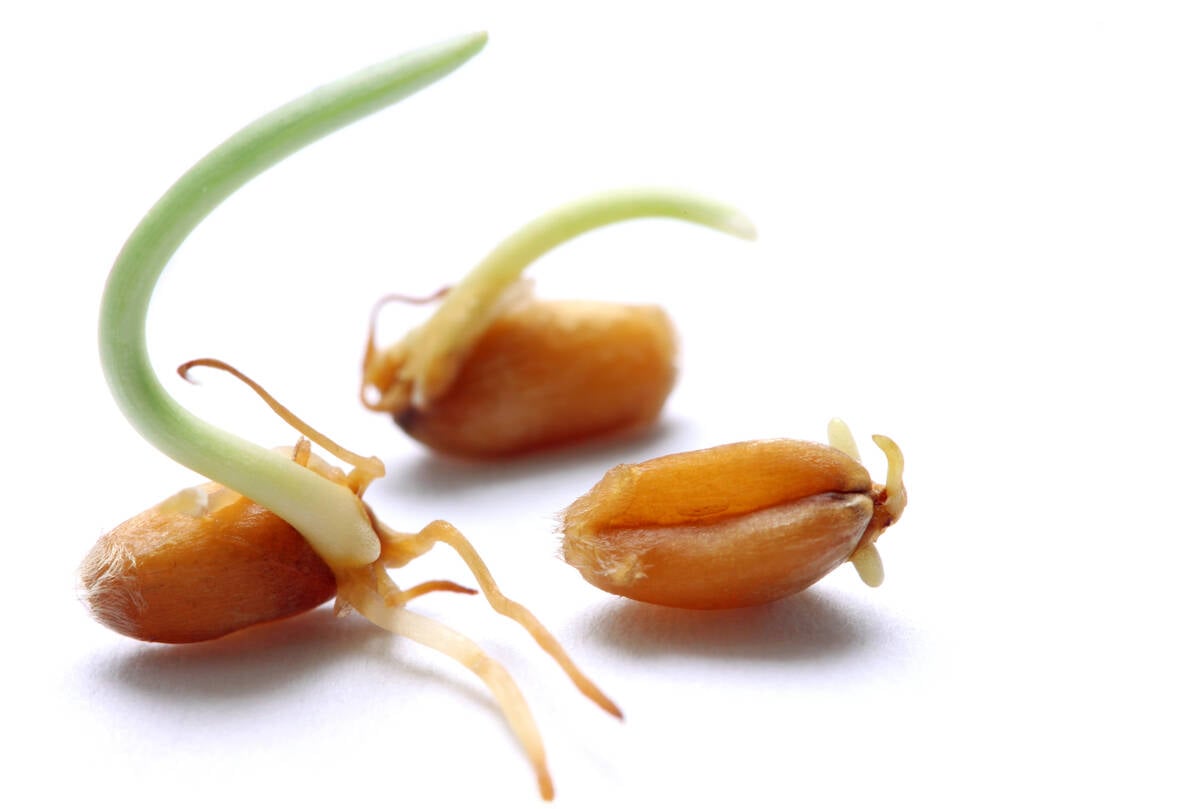Two-term Manitoba Progressive Conservative MP Rick Borotsik sounded downright depressed.
He is opposed to a leaders’ agreement to merge the Progressive Conservative party with the Canadian Alliance, unhappy with the merger process and fearful that a new Conservative Party of Canada would offer weaker agricultural policies than the Tories now offer.
Borotsik, the party agriculture critic, sees the proposed merger announced last week by Alliance leader Stephen Harper and Tory leader Peter MacKay as more of an Alliance takeover than a merger.
“That is definitely part of my unease,” the Brandon MP said. “On agriculture, I just see them as not nearly as supportive of a long-term supportive policy as we are. I see their long-term policy as having the market decide and if it works for your farm, great. If it doesn’t, have a nice life.”
Read Also

Manitoba farmers fight sprouted wheat after rain
Rain in mid-September has led to wheat sprouting problems in some Manitoba farm fields.
Alliance agriculture critic Gerry Ritz, a Saskatchewan MP, considers that far too negative.
“I think there are a lot of similarities between our parties’ agricultural policies and I think a merger will just make us stronger,” he said Oct. 20. “They are both very producer-driven with more emphasis on the agriculture side of agri-food. With their (PC) members from the east who know more about supply management and horticulture than I do, I think it will make us much broader and stronger.”
Borotsik and Ritz represent the two sides of the debate in the latest twist in the unite-the-right drama that has been under way since a rift blew the PC party apart in 1993 and created the Reform party in 1987.
The leaders announced a merger agreement in principle that must be ratified by the members of both parties by Dec. 12 and would then lead to a leadership convention in March, just weeks before an expected election call by soon-to-be Liberal leader Paul Martin.
It would mark the official end to the PC party that led the battle for Confederation in 1867 and added the term “progressive” to “conservative” in 1942 to accommodate the new leader, Manitoba Progressive party premier John Bracken.
As he announced the deal Oct. 16, Harper said it will give the Liberal government a run for its money.
“The Conservative Party of Canada will combine the institutional history and expertise of the PC party with the grassroots democracy and energy of the Canadian Alliance,” he said in Ottawa. “In doing so, it will confront a Liberal government which seeks re-election on little more than the argument that the opposition is divided.”
On Oct. 19, Harper received support for the deal from the vast majority of Alliance MPs and he expects to easily win the required 50 percent plus one membership votes.
MacKay has a much more difficult task. Two thirds of his party members must approve.
He won the PC leadership this year by signing a deal with Saskatchewan farmer and leadership candidate David Orchard that he would not merge with Alliance.
Now, Orchard is leading the fight to kill the deal. Former leader and prime minister Joe Clark opposes it and the sole Tory Quebec MP, André Bachand, said Quebec voters would consider the deal “sleeping with the extremists.”
Borotsik reflected the same unease. In 1997, he was the only Conservative elected in Western Canada and in 2000 was joined by Clark in Calgary.
“I just think that from a Canadian perspective, their policies are too harsh,” he said.
Even on the Canadian Wheat Board issue, he sees a difference even though both want to end the CWB monopoly.
Borotsik said the Tories would seek to end the monopoly through a farmer referendum that would have a non-monopoly wheat board as an option. “I see them as just wanting to get rid of it and let the market rule. I think our policy is more nuanced.”














